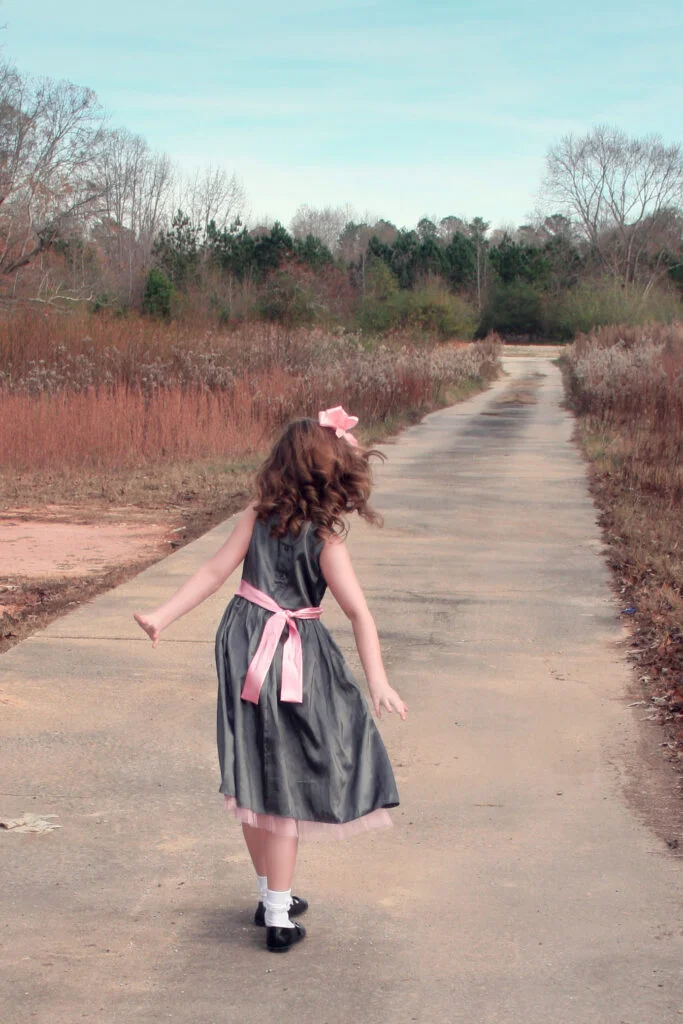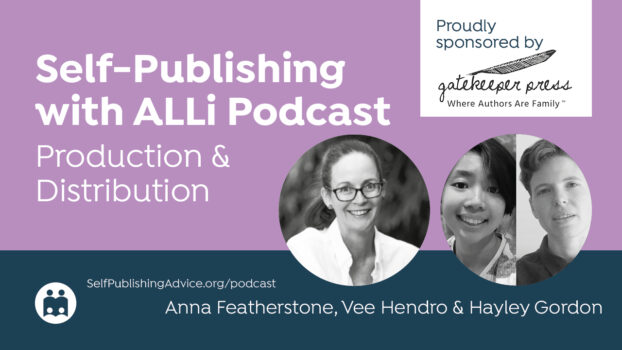Self-publishing brings many benefits, including the freedom to write your book in first person, third person, or whatever style or voice you choose. Tales abound of authors whose books have been rejected by agents or publishers for writing in the first person – and then again when they've obligingly rewritten them in the third! So if you're taking the author-publisher route, which course should you steer? Here are some pros and cons, taken from a private conversation between ALLi author members on our Facebook forum (an excellent benefit of belonging to our organisation!)
Pros of Writing in the First Person
-
It helps you feel your way into the narrator's persona – a kind of method acting for authors!
- To the reader, it feels more immediate and “in your face”, and less like historical reporting.
- It ‘s also the most natural, intense and personal way of writing, because that's how we all naturally are – first person thinkers. It feels a bit like writing a diary, which has always been a good exercise to get words flowing.
- Writing in the third person can feel more like hard work!
- In certain genres, it can be a positive bonus and a convention – e.g. in mysteries, the reader is right there, along with the protagonist, solving the clues, or witnessing their solution (think Holmes narrated by Watson, Poirot by Captain Hastings).
Cons of Writing in the First Person
- It restricts what you can do because all the action has to be witnessed by that first person, unless you are writing first person from a series of different characters (which can be complex and confusing).
- You need a stylised voice and character to carry it off – unless it's autobiographical, so not as simple or natural as you might think if you've never tried it before.
- There's a danger with first person that you can end up sounding like yourself, and not sufficiently distinctive as a character.
- There's also a danger that people might jump to the conclusion that what you're writing is autobiographical – fine if your narrator is all-round fabulous, less so if they're a crazed axe murderer or fraudster!
- Some readers find first-person narratives unpalatable and will get no further than the first page – not as common with third-person stories.
What to Do If You're Undecided
-
Try transposing the first chapter from first person into third, or vice versa, to see how different it feels – it's usually surprisingly obvious which works best.
- Look at other books in your genre to see which person they're most commonly written in, and which reads best in your opinion.
- Consider the reader (the most important person in the equation!) In some genres, readers have a strong general preference for first or third person. You don't need to do what everyone else does, but if you're going to be different, make sure it's for the right reasons, i.e. your story is the stronger for your choice.
- If you use beta readers or structural editors, ask them specifically to comment on your choice of first or third person.
Ultimately, as an indie author, the choice is yours – and the buck stops with you! Good luck and have fun with your writing, whichever voice you choose.
OVER TO YOU
Do you prefer to write in first person or third? How about your choice of reading – which do you most enjoy? Please join the conversation via the comment box!
Pros and cons of #writing in the first person by @DebbieYoungBN #WW Share on X






[…] (Image via Self Publishing Advice) […]
I can’t thank you enough for such a wonderful advice… Well, I’m working on my first but soon to be published novel;and it’s written in first person!
Out if interest do you own the black and white picture of the girl reading and would you let me use it?
Interesting posts re first vs. third person writing. I prefer writing in first person with introductory material written in third person, e.g., Last Pirate at Fort Matanzas. The interesting aspect of writing a screenplay moves the screenwriter into using third person only due to the dialogue for characters being in their first person voices and the scene descriptions being in third person. The POV argument of seeing only thru the eyes of a protagonist has value in my opinion because the third person presentation in a book can raise the question in a reader’s mind, “Who is there to notice/see that?” A wonderful example being the old question: If a tree falls in a forrest with nobody around to hear it, does it make a noise?”
I write in both.
I find that it depends on the story and how you want it to go.
Personally, I like it when authors write in dual first-person POV. Especially when I really want to know how the other character thinks and what they perceive to be the reasons for whatever is happening in the story.
I also like it when the story is told solely from the protagonist point of view, so I can see how they are witnessing the development of other characters in the book.
I guess I like anything!
As a writer of kids books, let me think:
Alice was getting very tired of sitting by his sister on the bank, and of having nothing to do.
The house whisked around two or three times and rose slowly through the air. Dorothy felt as if she were going up in a balloon.
The afternoon sun was getting low as the Rat sculled gently homeward in a dreamy mood, murmuring poetry-things over to himself, and not paying much attention to Mole.
Nuff said!
Great examples, Christopher! 🙂
Good point, Serena. Definitely the sign of a good book when you don’t consciously notice how it’s written but just get swept up in the story – analogous to when you see a film or play and don’t think “what great method acting” but just get invested in the characters and their actions.
About having both 1st and 3rd person POVs, for “Sundays at Tiffany’s” by James Patterson and Gabrielle Charbonnet, the story was told from the first person POV of the heroine and the third person POV of the hero (it’s a romance.) The POV person switches after each chapter.
But the funny thing is, when I was reading the book, I thought it was told in the 1st person for BOTH the hero and the heroine. It was only when I read through some Goodreads reviews that talked about POV that I realized that the hero’s POV was in the 3rd person, not the 1st…Which shows that the reader (me, at least) can get so immersed in the story, that they don’t even realize that it was 3rd person limited and not 1st person.
When authors switch to present tense, again, I generally don’t even notice this until much later on, and I go, “Oh my gosh when did the author switch??” And find that the author switched a long time ago. I think most readers are more aware of tense switches, though; I just get way too immersed in the story that I don’t notice a lot of things.
Well said, Serena – I bet a lot of us have been through the same process without even noticing the switch! Many writing techniques are only really conspicuous when they’re not done well.
My last book, Prunella Smith: Worlds Within Worlds, just ‘came out’ in first person. There was no way that I could have written it any other way. It also came out in present tense, which some readers hate, but that’s how it came out, and that’s also how it had to be. Even though there are quite logical reasons for why it had to be that way – having to do with several interwoven story threads involving different POV’s for different but related characters, some even in third person past – my point is that it was simply the way it had to be for me to write it. Sometimes I think we worry too much about what others think, or what is ‘right’ or best, but at least at the first draft stage, we just need to write how it comes to us. That’s the way we get a strong voice. You might decide to change the POV, yes, but don’t do it because others warn you off first person. Do it only if it feels right to you.
I took huge risks with POV in the above book, and with structure and tense; it could have been a mess, but it worked. If I’d stuck to the usual advice on such things, the book wouldn’t have been as good a vehicle for my ideas as it is in this form, nor would it have been as interesting. Mind you, it’s easier to take risks after you’ve written 5 books that don’t take risks.
Prunella does sound like me, but that’s okay, because she is very like me in many ways. She shares a lot of my history, (we were both dancers for example) only she’s taken the paths I didn’t take. She even lives in the kind of place that I live, so yes some could see it as being autobiographical, except I’m pretty sure they wouldn’t think that I’d been physically attacked by an author that didn’t like my review of their book. Mind you, you never know. That sort of thing does happen!. Either way, I don’t think it matters. If it feels right to you to write in first person then do it, no matter what anyone says. There’s no right or wrong in this kind of thing.
Good point about this being the way to develop a strong voice, Tahlia – you can only do that by writing what feels right and natural to you.
As you know, I very much enjoyed “Worlds Within Worlds” and found it interesting and different – and although I did think you’d clearly drawn on your own experience for Prunella’s perspective (background, setting), I didn’t for one moment think “Oh, poor Tahlia, she’s must have been stalked by an author”!
My first exposure to mixed first/third POV was the Maggody books. Trying to remember the author w/o looking it up. I think it was Joan Hess but don’t quote me. The first switch was a bit jarring, since I’d never run into it before (early 90’s) then I enjoyed it. I suspect that we like/dislike things until someone makes us like/dislike it by doing it brilliantly/atrociously.
Very good point, Pauline! And yes, it was Joan Hess – I just looked her up!
My first published novel started out in third person. The draft was very stiff and stilted, and I could not get past the first few chapters to save my life.
I went back to the beginning and started writing the story again in first person and it was like turning on a fire hose.
I’ve written in both first and third person since then, but if I learned anything from this experience, it’s that a) I need to try a chapter in both first and third before I go any further to see which works best for this particular book, and b) some characters are incredibly stubborn and will only do things *their* way [wry g].
Lol! Yes, if you can’t decide, you can always ask your characters which they’d prefer! 😉
I’ve written a number of short stories in first person, but my novels are in third. In novels, I like to add suspense and tension by letting the reader know something the protag doesn’t — like a ticking bomb under the table, for instance — and third person is the best way to do that. I also like to hop into a secondary character’s POV once in a while. I’ve never agonized over whether to go first or third. When I begin a story, it somehow lets me know how it wants to be written.
Usually I get stuck into whichever feels right from the start of the story, without consciously thinking which person it should be in – but when a story doesn’t feel right after I’ve written it, changing the person often turns out to be the solution.
I agree with Fiona and add it’s the story. It’s always the story.One tells the story in the manner best suiting it: person, tense, dialog or description dominant. A thriller, for example, might best be written in first person present, while a literary piece of some length with multiple plots and characters will do better in third or omniscient and past.
One must always sidestep the pitfalls, whatever the POV and tense. They lie elsewhere as well.
Can’t argue with that, David!
I just now read J.J. Toner’s comment above, about mixing first and third person viewpoints in the same novel and I agree. It is a sin that should receive no forgiveness in this world or the next. At least I’ve never read an example that worked. I admit that possibly, someone somewhere might be able to make it work, but I remain skeptical.
Have to disagree on this one, Edmund. I’ve read a few books that mix first and third person – examples include Harlen Coben and Stephen King – and find that if handled well and correctly it actually adds to the story telling.
Personally I prefer to write in third person, but have also written several books in first (one of them over 140K words).
I think there are no absolute rules on this one – provided that whatever you write, you write it well!
Someone, I think it was Stephen King, said that rules are made to be broken, as long as you understand them in the first place. My debut novel, Revenge Ritual, due to be published soon, started off with multiple third person POV’s. After a fruitless year sending it out to agents I won a competition which resulted in a ms read through and consultation with a top agent. He liked the use of multiple viewpoints but felt the antagonist was too weakness and suggested changing them to first POV. I did, and was shortlisted for The Luke Bitmead award and then offered a publishing contract by Endeavour Press.
I don’t know if the mixed viewpoints made the difference – but I do know that Val McDermid, one of my favourite authors does this very successfully. So I’d be interested to know from you sceptics if you think it works in Revenge Ritual when it’s published.
Very interesting example there, CJ, which I’m sure will encourage those who are hesitating to experiment with first person. Looking forward to reading Revenge Ritual!
Now there’s a challenge, Edmund – let’s see whether anyone volunteers their own work in first and third for your scrutiny!
Another question you didn’t discuss is whether the 1st person narrator is also the main character. This makes a huge difference. In mysteries told in first person, the main character, the detective, is usually the narrator, but one of the examples given by Debbie, Sherlock Holmes, is the main character but not the narrator. Once you leave the mystery field I think it’s better if the narrator is not the main character. Two classic examples would be “The Great Gatsby” and “The Moon and Sixpence” by Somerset Maugham. In both those books we learn next to nothing about the narrators, they hardly exist, yet they’re telling the story. In a novel written this way, the author has the problem of arranging for the narrator to be in the right place to learn or see what must be told. Documents, overheard conversations, etc. must be used with discretion! In the case of the two novels mentioned, Fitzgerald and Maugham use different strategies to solve this problem, but both succeed brilliantly. If the narrator is the main character there is a great danger that the author’s voice and the narrator’s voice will become one. It’s just too easy to fall into this trap. A sad example of this is Nelson DeMille. He has three series characters I know of and they are all the narrators and main characters of the novels. They are indistinguishable. They all have the same snarky sense of humor, all make the same jokes, etc. and they are all clearly none other than Nelson DeMille himself. If you write in the first person you have to make sure that person is not you. A counter example would be Louis Auchincloss. I’ve read three of his novels and all are told by multiple 1st person narrators. These narrators are all different people with their own voices and concerns. Auchincloss himself remains out of sight. They’re brilliant books. I wouldn’t attempt anything that difficult myself. My advice to me is: Embrace your divinity; write in the third person.
Very good point, Edmund, and thanks for adding this angle to the conversation. Unreliable narrators who are not the main character are always interesting, and The Great Gatsby is of course the classic example. What a different book that would be if written by Gatsby or Daisy in the first person. Now that sounds like an interesting writing class exercise! I haven’t read “The Moon and Sixpence” but it’s on my to-read list; will bump it up to reach it sooner while this conversation is fresh in my mind.
A narrator who is a main character but partly mysterious – the never-named narrator of Daphne Du Maurier’s Rebecca, for example – is a good wheeze.
I think it can be a good way to avoid creating a first person narrator when writing in the first person is to write it as if you an actor, playing a different person. In your head, read their words in a different voice or accent to your own to keep your distance.
When doing public readings of any of my short stories written in the first person (whose narrators are usually not at all like me), I often worry that people will associate his or her foibles with my own character – the dotty old woman or ditsy young girl, etc.
I love your phrase “embrace your divinity; write in the third person”.
The beauty of third person is that you can switch pov without difficulty. And switching is vital for certain types of subtext (like when you switch to the antagonist’s viewpoint to give the reader some inside information that the main character doesn’t know). Subtext is the motherlode of fiction (see David baboulene’s book: The Story Book where he explains everything about subtext). I have read books that mix first and third. This, in my view, is a cardinal sin and ought to be a capital offence. 🙂 Check out Child 44 by Tom Rob Smith, for example (now a major movie, as they say) if you’re in any doubt.
I agree, JJ, a book that switches between first and third is usually an uncomfortable read, and asking a bit much of the reader. It can also feel slightly as if the author is a bit indecisive. Maybe it’s best to consider what the reader will like best, if in doubt?
I have written in both, and will do so again. I’m also happy to read books in either. The only question that matters to me is: Does the chosen POV feel write for this story told in this way? I’ve got half way through writing a book before realising that it wasn’t working and I needed to take the other route. The book that has given me most difficulty is one I’ve been working on for five years (I’ve started and finished three others during that time) and I’ve changed three times from 1st to 3rd and back again. I can’t finish the book because, although I know the story I want to tell, I can’t work out how to tell it.
And — obviously — I meant does it feel right, not does it feel write. That’s Dragon speech recognition software for you.
That’s very interesting, John – I think usually it’s fairly easy to decide whether a story feels right in first or third. I’m intrigued now to learn more about this troublesome book. Maybe you need to come down in the middle and write it second person. No, only kidding!
I’ve just completed three novels which form a trilogy in different time periods. Book 1, Annie’s Story, set in 1913, I wrote in the third person; Book 2, Juliet’s Story, set in the present, I wrote in the third person; and Book 3, Kitty’s Story, set in 1941, for some reason, and without even thinking about it, I wrote in the first person. It just came naturally to me, though normally I feel more comfortable both writing and reading in first person. However, I’ve written a couple of memoirs where of course the first person was the only choice’
But I’m having a dilemma with my next novel which will be a rom-com. I think it could easily be first or third and I honestly don’t know which one will feel the most natural. Am sure I’ll end up doing two versions of the same couple of chapters, as in Debbie’s advice. More decisions…
That’s very interesting, Denise! I’d go with your instinct of what feels right again – I’m sure if you do two versions, one will shine out to you as being the better optoin.
Excellent advice.
I have just completed a novel with two equal protagonists and their two points of view. I find doing two points of view in first person doesn’t work for me, and puts me off when other authors do it. Any comments?
I tend to agree, Barbara. I wouldn’t mind one in first and the other in third, but getting right into the heads of two different protagonists is rather a tall order.
It’s fine to have personal preferences, Barbara, just beware that your dislike of one particular approach may arise because you’ve only read examples of it done badly by other people.
Personally, I’m happy to read books with alternating narrators, and in first or third person, and I’ve even read some short stories in the second person that worked well, but I have stronger preferences when it comes to choice of tense, which can often feel a bit exhausting to read (and sometimes an unnecessary complication). When starting to read a book and discovering it’s in the present tense, I sometimes think “Oh dear”, but then after a few pages, I’m completely immersed and don’t mind, provided that it’s been done well and for the right reasons – because the author felt the story worked best in the present tense, rather than in the past. It’s amazing what a difference it can make. Maybe we need to have a blog post on that soon too…
My other less rational aversion is to books featuring people with silly or unlikely made-up names. Never could get on with Lord of the Rings, for example. *runs to hide*
Dear Debbie,
I agree with what most of what you say about writing in the first person
but I believe one must also look at current societal trends which can be intensely intrusive and individualistic. Consider the popularity of taking “selfies” and the groping groupiness of t.v. shows like “I’m a Celebrity” and ” Big Brother”.
Using third person is a challenge to this kind of thinking because it keeps the reader a respectful distance from your characters until moments of catharsis and high drama when the effect is heightened.
Fiona, I agree – best to write by our own “rules” rather than what others try to lay upon us.
I am daily grateful for being an indie so that I don’t have a publisher who can force me to change from one voice or person to another, or to steer my work into a particular fixed genre, because of whatever happens to be fashionable at the time. I’ve heard horror stories of authors being asked by agents or publishers to rewrite a story in first person in third instead, and vice versa, and then still having it rejected – how galling!
A thought-provoking piece!
The “con” that rings particularly true with me is the difficulty of maintaining a distinctive voice. The restrictions of 1st person PoV – yes, they exist, but boundaries can be helpful! I get a wee bit ratty with people who pontificate that they “can’t” read books written from a particular PoV. Could be me, but I often find they’re the same people who are tremendously impressed by their own opinions of many things other than the way books are written. Good luck to them; get a life; buy a different book.
I think one of the worst things we can do as writers is try to shape a piece of work according to perceived “rules” – I’d say that’s as unlikely to work out well as trying to write in a particular genre merely because it seems popular at any given time. I honestly believe that we’re likely to be much more comfortable with one PoV than another, and will tend to write predominantly (though not exclusively) using that PoV. Trying to force ones writing into a particular mould is fraught with dangers – not least that writing becomes a chore rather than a delight. Damn few of us are making a viable living from indie publishing, so if it’s no longer a sheer joy, a reason to get out of bed in the morning, a reason not to open the vodka bottle until the sun’s well & truly over the yard-arm – why do it?